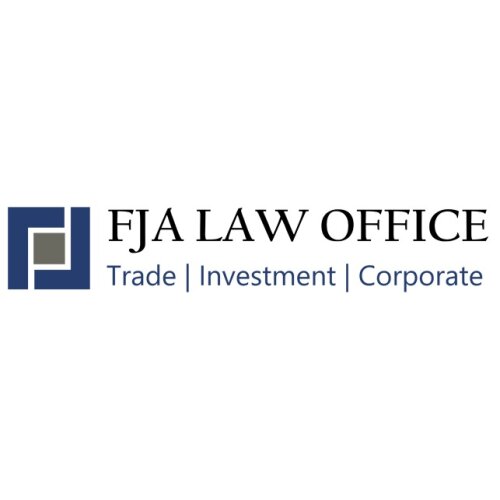Best Communications & Media Law Lawyers in Ethiopia
Share your needs with us, get contacted by law firms.
Free. Takes 2 min.
Or refine your search by selecting a city:
List of the best lawyers in Ethiopia
About Communications & Media Law in Ethiopia
Communications & Media Law in Ethiopia governs how information is managed across different communication platforms, including broadcasting, print, and online media. It deals with issues such as freedom of speech, censorship, media ownership, privacy rights, and information dissemination. Ethiopia has undergone significant regulatory changes in this sector in recent years, driven by technological advancements and the need for modernization of its legal framework. As the country continues to develop its communications infrastructure, the legal system aims to balance freedom of expression with the protection of public interest and national security.
Why You May Need a Lawyer
There are various situations in Communications & Media Law where individuals or organizations may require legal assistance:
- **Defamation Claims:** If you're accused of publishing false information or if you've been the victim of defamatory content.
- **Censorship and Compliance:** Media companies may need guidance to ensure compliance with local laws regarding broadcasting and publication standards.
- **Intellectual Property:** Protecting your creative works or negotiating rights for content use may require legal intervention.
- **Consumer Privacy:** Consulting on issues related to data protection and privacy rights in the context of digital communications.
- **Regulatory Disputes:** Resolving conflicts with regulatory bodies such as the Ethiopian Broadcasting Authority.
A lawyer specializing in Communications & Media Law can provide critical guidance in these and other areas, ensuring compliance with regulations and protecting rights.
Local Laws Overview
Ethiopia’s Communications & Media Law encompasses various legislations, including:
- **Proclamation on Freedom of the Mass Media and Access to Information:** Governs the freedom of the press and public access to information.
- **Broadcasting Proclamation:** Regulates broadcasting services, establishing standards and licensing requirements for radio and television stations.
- **Data Protection Regulations:** Although still developing, these laws aim to protect consumer information and provide guidelines on data usage.
- **Telecommunications Regulatory Proclamation:** Aims to open and regulate the telecommunications sector for competition and innovation.
These laws are pivotal for shaping how media operates within Ethiopia, balancing freedom with accountability and responsibility.
Frequently Asked Questions
What is the role of the Ethiopian Broadcasting Authority?
The Ethiopian Broadcasting Authority (EBA) is responsible for regulating the broadcasting sector in Ethiopia, including licensing broadcasters, ensuring compliance with media laws, and promoting effective and efficient use of radio frequencies.
How is freedom of expression protected or restricted in Ethiopia?
Freedom of expression is recognized under the Ethiopian constitution; however, it is subject to restrictions to protect public morality, security, and order. Laws regulate content to balance these interests.
What are the penalties for defamation in Ethiopia?
Defamation can lead to civil and criminal penalties, including fines and possibly imprisonment. The law requires that false statements causing harm must be proven.
How does Ethiopia address media ownership and competition?
The law promotes diverse media ownership to prevent monopolistic practices and encourage competition, with specific rules about foreign ownership and concentration control.
Is online content regulated differently than traditional media in Ethiopia?
While online content is subject to similar rules as traditional media, emerging regulations are developing to specifically address digital platforms and social media issues.
What rights do individuals have regarding their personal data in Ethiopia?
Although data protection laws are still evolving, individuals possess certain rights related to their personal data, primarily focusing on consent and purpose limitation.
Can foreign media entities operate in Ethiopia?
Foreign media can operate under certain regulatory restrictions, which usually involve licensing requirements and adherence to Ethiopian law.
What avenues exist for resolving disputes with media entities in Ethiopia?
Disputes may be resolved through legal action, regulatory bodies like the EBA, or alternative dispute resolution mechanisms such as arbitration and mediation.
Are there special laws for journalists in Ethiopia?
Yes, journalists are subject to specific laws that aim to protect their rights and outline their responsibilities in the dissemination of information.
How does censorship impact media operations in Ethiopia?
Censorship in Ethiopia is intended to protect national security and public morals, but it can impact media operations by imposing constraints on content that can be disseminated.
Additional Resources
- **Ethiopian Broadcasting Authority**: The main regulatory body overseeing broadcasting services in Ethiopia.
- **Ministry of Innovation and Technology**: Plays a role in telecommunications policy and data protection initiatives.
- **Ethiopian Journalists Association**: Provides support and resources for journalists working in Ethiopia.
- **Professional Media Organizations**: Offer training, resources, and advocacy for media workers regarding legal rights and responsibilities.
Next Steps
If you need legal assistance in Communications & Media Law, consider the following steps:
- **Research and Identify Lawyers:** Look for lawyers specializing in Communications & Media Law with experience in Ethiopian law.
- **Consult with Experts:** Schedule consultations to discuss your specific issues and determine the best course of action.
- **Prepare Documentation:** Gather all relevant documents, contracts, and correspondence related to your legal concern.
- **Understand Your Rights:** Familiarize yourself with local laws and regulations to better understand your situation and legal options.
Taking proactive steps to engage with legal experts will ensure you are well-prepared to handle any legal challenges you may face in the communications and media landscape in Ethiopia.
Lawzana helps you find the best lawyers and law firms in Ethiopia through a curated and pre-screened list of qualified legal professionals. Our platform offers rankings and detailed profiles of attorneys and law firms, allowing you to compare based on practice areas, including Communications & Media Law, experience, and client feedback.
Each profile includes a description of the firm's areas of practice, client reviews, team members and partners, year of establishment, spoken languages, office locations, contact information, social media presence, and any published articles or resources. Most firms on our platform speak English and are experienced in both local and international legal matters.
Get a quote from top-rated law firms in Ethiopia — quickly, securely, and without unnecessary hassle.
Disclaimer:
The information provided on this page is for general informational purposes only and does not constitute legal advice. While we strive to ensure the accuracy and relevance of the content, legal information may change over time, and interpretations of the law can vary. You should always consult with a qualified legal professional for advice specific to your situation.
We disclaim all liability for actions taken or not taken based on the content of this page. If you believe any information is incorrect or outdated, please contact us, and we will review and update it where appropriate.
Browse communications & media law law firms by city in Ethiopia
Refine your search by selecting a city.










